Completing the square - example 2
Complete the square `2x^2-6x+3=0`
NOTE:
The coefficient (or number) in front of the `x^2` must be a one.
So divide both sides by 2.
`(2x^2)/2-(6x)/2+3/2=0/2`
`x^2-3x+1\1/2=0`
Remember
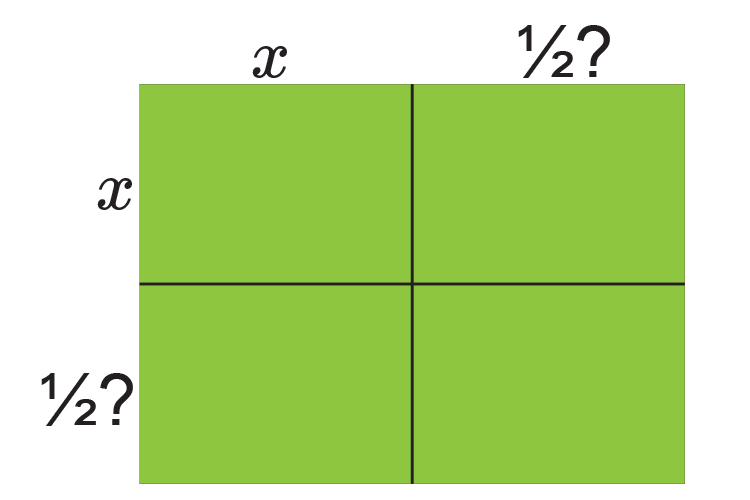
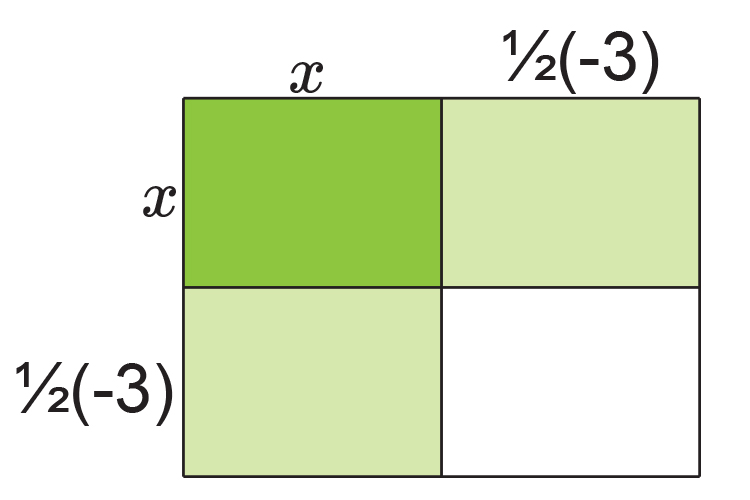
Is the same as
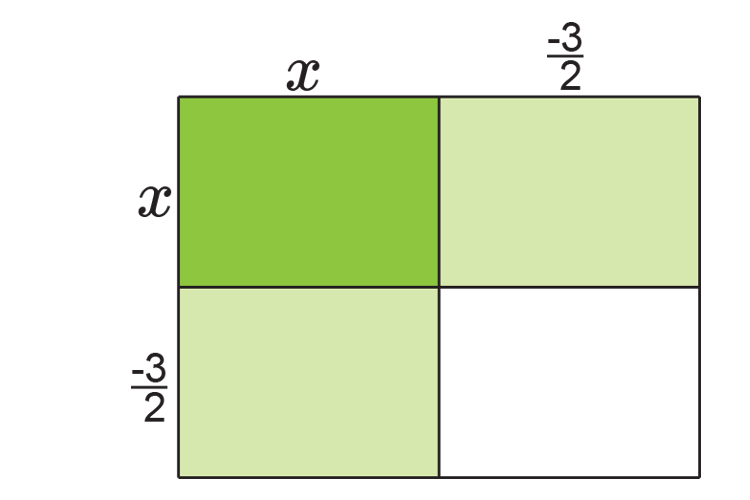
Fill in the table
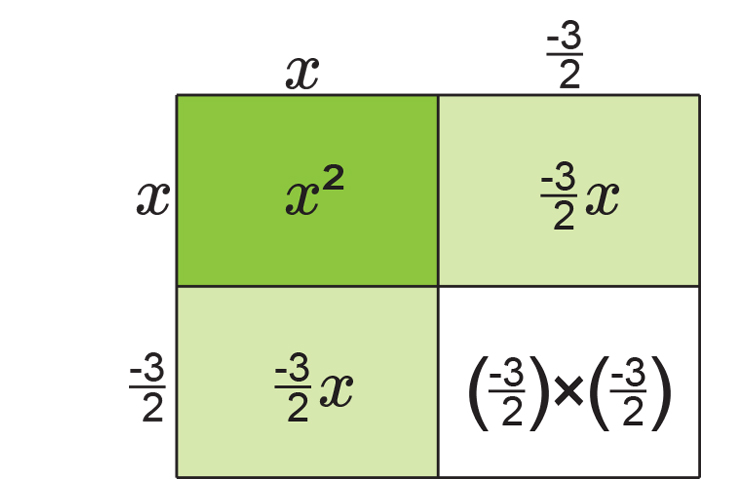
Is the same as
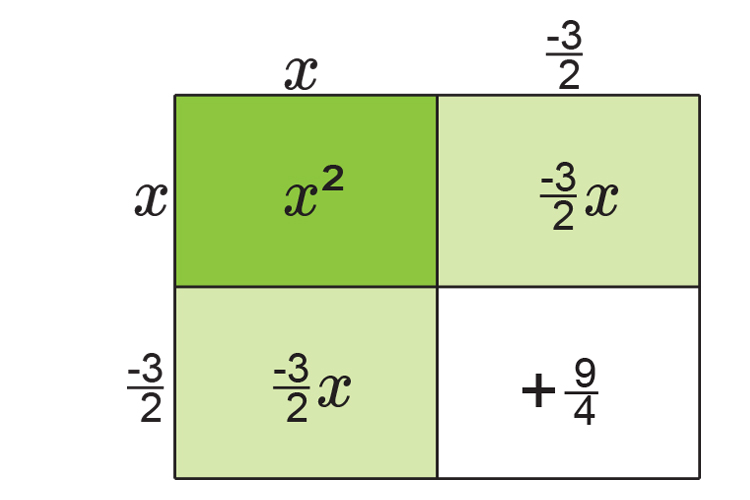
NOTE:
This is the same as `(x-3/2)^2`
If you add up each area you get:
`x^2-3/2x-3/2x+9/4`
`x^2-6/2x+9/4`
`x^2-3x+9/4`
`x^2-3x+2\1/4`
Originally we had `x^2-3x+1\1/2=0`
Now we have `x^2-3x+2\1/4=0`
Always plot this on a number line.
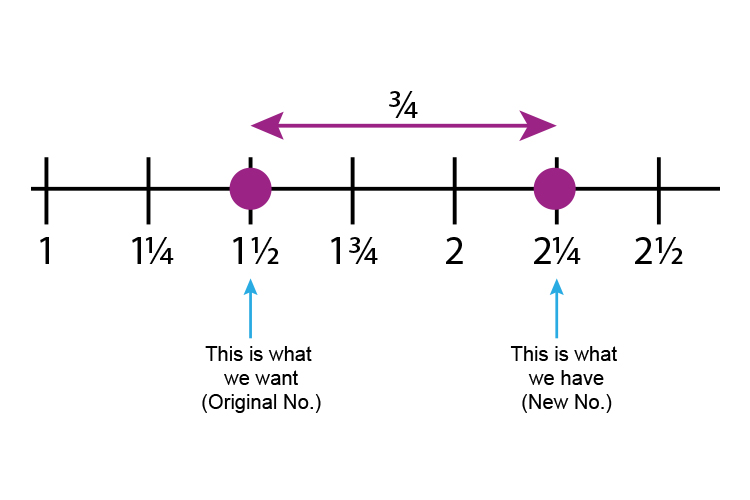
The number line will help you remember
Original number `-` New number
`1\1/2-2\1/4=-3/4` (We need to `-3/4` )
So `x^2-3x+1\1/2=0`
Is the same as `(x-3/2)^2-3/4=0`
Which can now be solved
`(x-3/2)^2-3/4=0`
`(x-3/2)^2=3/4`
`(x-3/2)=+-sqrt(3/4)`
(Don't forget the root of anything can be `+` or `-` )
`x-3/2=+-sqrt(3/4)`
`x=3/2+-sqrt(3/4)`
`x=3/2+sqrt(3/4)` or `x=3/2-sqrt(3/4)`
Using calculator
`x=1.5+0.866` or `1.5-0.866`
`x=2.366` or `0.634`
Now check
`2x^2-6x+3=0`
If `x=2.366` `2times2.366^2-6times2.366+3=0`
`11.19-14.19+3=0` Which is correct
If `x=0.634` `2times0.634^2-6times0.634+3=0`
`0.804-3.804+3=0` Which is correct
Answer:
The roots of `2x^2-6x+3=0` are `x=2.366` or `0.634`




